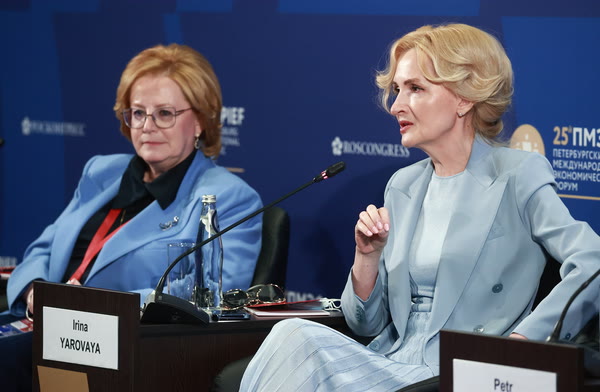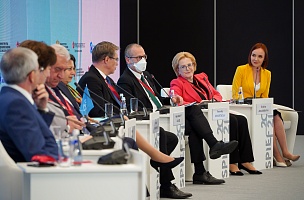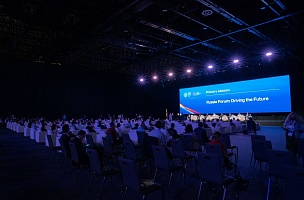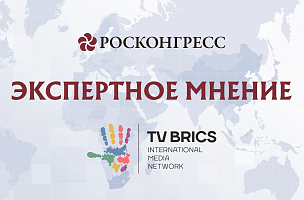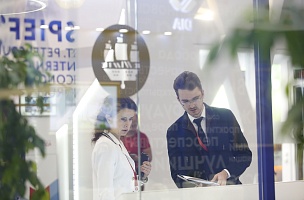KEY CONCLUSIONS
Progress in Russian medicine is impossible without international cooperation
“When we faced the pandemic, we mobilized our resources fast. However, we discovered areas, where we did not have enough industrial capacity. We are striving for technological independence, and every country is trying to achieve it. However, full technological independence is hardly achievable. There is still cooperation. The global economy cannot do without it,” Mikhail Murashko, Minister of Health of the Russian Federation.
“We need to combine our efforts in such difficult times. Let us all move forward – we are ready to cooperate with everybody,” Veronika Skvortsova, Head, Federal Medical-Biological Agency of the Russian Federation.
“We need to take a look and evaluate what we have and combine our efforts. We need to have openness. All the labs that we have should not copy each other’s research. They should work together to achieve a common goal,” Petr Glybochko, Rector, I.M. Sechenov First Moscow State Medical University of the Ministry of Health of the Russian Federation.
“Medicine is a multidisciplinary and international science. Even during the toughest days of the Cold War, Soviet and American doctors together received a Nobel peace prize for the International Physicians for the Prevention of Nuclear War movement. They worked together. All of it because we work with human life. There is nothing more precious than that. I believe that international cooperation should be developed despite all the difficulties,” Simon Matskeplishvili, Deputy Scientific Director, Lomonosov Moscow State University Clinic; Member of the Board, Russian Society of Cardiology.
PROBLEMS
Regulation limiting progress in science and medicine caused
“We are now working on cancer vaccines. They are unique. They are not just unique to a person, but to every tumor in every person. <…> It means that similar modern approaches only exist in the law on biomedical cell products. When we speak about registration of autologous products, we mean that we register a technology – not the cell. Same applies to unique personified medications. It means there should be an approach to technology standardization and their creation. Yet we understand that we cannot draft a law applicable to every human’s molecules – there are thousands of them,” Veronika Skvortsova, Head, Federal Medical-Biological Agency of the Russian Federation.
“We need to improve the regulations. <…> When we start collaborating at early stages, it appears that we violate some principles of competition in choosing a company. We cannot do that, otherwise a lot of money will be spent in vain, as specialists of the real economy will know that this path is unrealistic and we need to take a different one,” Sergei Lukyanov, Rector, Pirogov Russian National Research Medical University.
“What we definitely need to change is the principles of building research teams, at least bigger ones. Why do things work out in some place, but not other? They work out in places that have both researches and technologies. <…> We need to mix people and their expertise – this is the path to growth points,” Vsevolod Belousov, Director, “Federal Center of Brain Research and Neurotechnologies” of the Federal Medical Biological Agency.
SOLUTIONS
Russian science can become a leader through frontier research
“We need to be aware of our strengths. Import substitution is definitely needed, but a breakthrough takes radiopharmaceuticals and R&D for immunobiologicals. <…> As for these competencies, we can move forward and create new things faster,” Mikhail Murashko, Minister of Health of the Russian Federation.
“The future holds a transition to truly personalized medicine. What does it mean? It means influencing each person's body by understanding their absolute uniqueness, unique biological codes, genetic, various omics [technologies based on advances in genomics. – Ed]. <...> many of our centres are working in this direction,” Veronika Skvortsova, Head, Federal Medical-Biological Agency of the Russian Federation.
“Today we are building a world-class centre. It will offer digital biodesign and personalised healthcare, which will make it possible to prepare software for early diagnosis, treatment and prognosis for kidney cancer, lung cancer, colorectal cancer, hypertension, myocardial infarction in the near future. This is a big task, it will not be solved tomorrow – by 2025, as far as we have been funded. This creation of digital duplicates of diseases is a decades-long task,” Petr Glybochko, Rector, I.M. Sechenov First Moscow State Medical University of the Ministry of Health of the Russian Federation.
“In order for us to thrust into the future and to be at the forefront of it, it is not enough to follow an extensive route, i.e. creating what already exists in the West, copying those technologies that are already out there. This is a necessary condition but it is not sufficient. To be ahead of the curve, we must introduce fundamentally new approaches, technologies which are not yet widely used today and are of a fundamentally new nature,” Sergei Lukyanov, Rector, Pirogov Russian National Research Medical University.
Expedited medical progress requires close cooperation with business
“We need industrial partners. <...> This is probably the most difficult task. To get there, there is a lot that has to be done. We have come this far, now we are already in demand, there are industrial partners. <...> We need staff, we need a base, and an investor must understand that if he or she invests two billion, firstly, the investment will be returned, and secondly, it will bring a profit,” Petr Glybochko, Rector, I.M. Sechenov First Moscow State Medical University of the Ministry of Health of the Russian Federation.
“Our employees do not have the understanding that university knowledge is not enough, that the university and other academic institutions have to interact with the real sector of the economy. On the other hand, the real sector of the economy, even large international companies, cannot create new knowledge on their own. They do not possess the tools and capabilities for this, they do not have the range of competencies and the system of project evaluation that will allow choosing the most advanced idea. It is only at the junction, at the combination of these capabilities that fundamentally new knowledge and new technologies emerge,” Sergei Lukyanov, Rector, Pirogov Russian National Research Medical University.
“I started going around factories and enterprises myself and talked to people. And suddenly it turned out that there is expertise that I did not think existed in Russia at all. I wondered where to get it and suddenly it turns out that these people have it. And this communication with the industry, somehow it has to be sought, somehow it has to be built,” Vsevolod Belousov, Director, “Federal Center of Brain Research and Neurotechnologies” of the Federal Medical Biological Agency.
For more information, visit the Roscongress Foundation’s Information and Analytical System roscongress.org.


